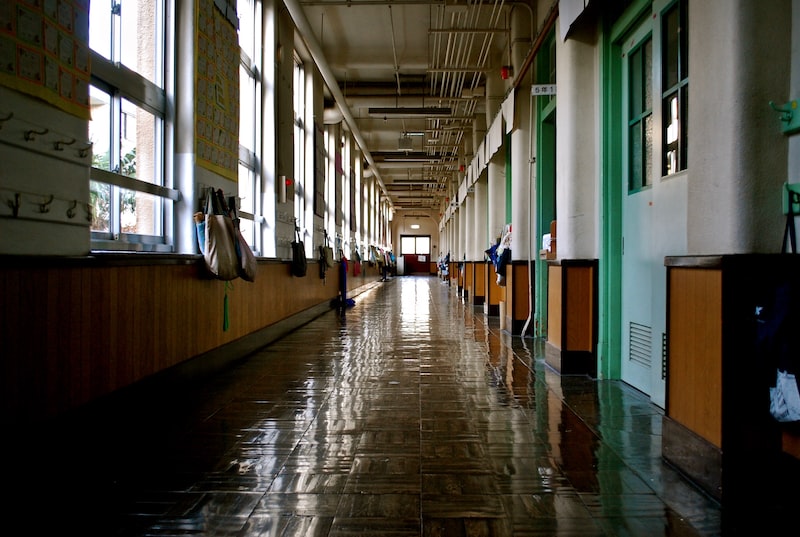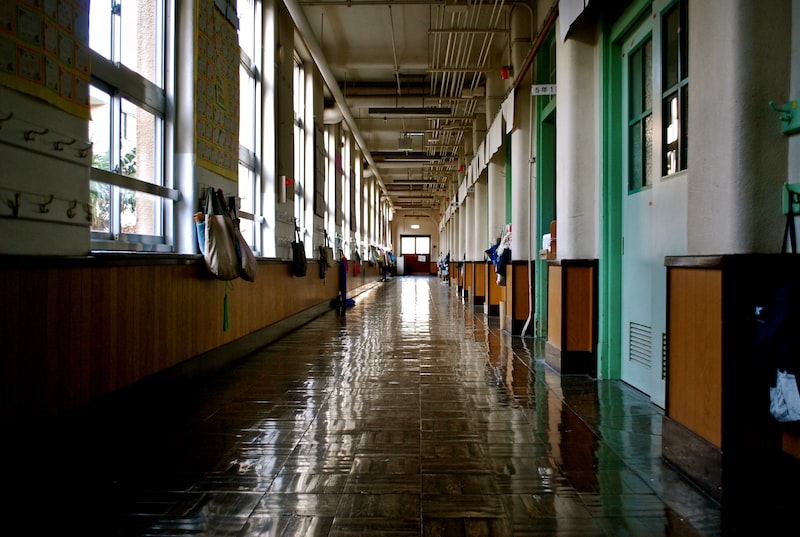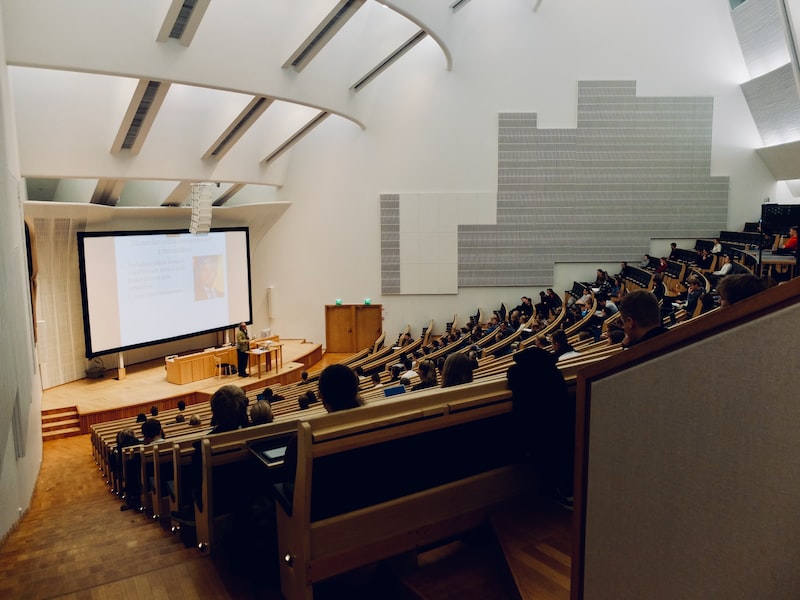Introduction:
Imagine a garden filled with young plants, waiting to grow and flourish. Just like these delicate saplings, children are the seeds of our future. Nurturing them through early childhood education is akin to providing fertile soil and abundant sunlight for their lifelong learning journey. Early childhood education plays a fundamental role in laying the foundation for a child’s intellectual, social, and emotional growth. In this article, we will explore the significance of early childhood education in shaping a child’s learning trajectory.
Unlocking the Potential:
Early childhood education is like a key that unlocks a child’s innate curiosity and potential. During the early years, children have an exceptional ability to absorb knowledge like sponges. By exposing them to stimulating learning experiences, such as interactive play, creative activities, and age-appropriate academic concepts, we ignite their passion for learning. This enthusiasm becomes the driving force behind their educational journey, setting them on a path of continuous discovery.
Building Strong Foundations:
Just as a sturdy house requires a solid foundation, a child’s educational success depends on a strong base formed during early years. Early childhood education focuses on developing essential skills like language acquisition, literacy, numeracy, problem-solving, and critical thinking. These foundational skills serve as building blocks that support future academic achievements. Furthermore, early education fosters social and emotional development, teaching children vital life skills such as empathy, teamwork, and self-regulation.
Long-Term Impact:
The impact of early childhood education extends far beyond the formative years. Studies consistently show that children who receive quality early education exhibit higher cognitive abilities, improved academic performance, and increased chances of pursuing higher education. Moreover, they demonstrate enhanced social skills, increased creativity, and better emotional well-being. Investing in early childhood education not only benefits individual children but also strengthens the fabric of society by reducing inequalities and promoting economic growth.
Parental Engagement:
Early childhood education is a collaborative effort that involves parents, educators, and the community. Parents play a pivotal role by actively engaging in their child’s learning journey. By providing a supportive home environment and participating in parent-teacher collaborations, they create an ecosystem where children thrive. Recognizing parental involvement as a vital component of early education ensures holistic development for each child.
Conclusion:

Early childhood education serves as the cornerstone of lifelong learning. By imparting knowledge, nurturing curiosity, and fostering holistic development, it sets children on a trajectory of success. As we invest in the education of our youngest learners, we sow the seeds of a brighter future filled with empowered individuals who will contribute to the betterment of society. Let us embrace the significance of early childhood education and empower our children to bloom into remarkable individuals who shape the world of tomorrow.
Cognitive Development in Early Childhood Education
Have you ever wondered how young children acquire knowledge, think, and solve problems? The early years of a child’s life are crucial for their cognitive development. In this article, we will explore the fascinating world of cognitive development in early childhood education.
During the early years, children’s brains are like sponges, eagerly soaking up information from their surroundings. They are naturally curious and constantly exploring the world around them. This period is when their cognitive abilities begin to take shape, laying the foundation for future learning.
One key aspect of cognitive development in early childhood is the development of language skills. As children interact with caregivers, peers, and their environment, they learn to communicate their needs, thoughts, and feelings. Language acquisition opens up a whole new world of understanding and expression, enabling children to engage in conversations, ask questions, and express their ideas.
Another important component of cognitive development is problem-solving skills. Young children are like little detectives, always trying to figure things out. Through play-based activities, they learn to identify problems, analyze situations, and develop creative solutions. Whether it’s building blocks or solving puzzles, these activities stimulate critical thinking and enhance problem-solving abilities.
Memory development is another fascinating aspect of cognitive growth in early childhood. Have you ever been amazed by how quickly children can remember things? Their ability to recall events, names, and even songs is remarkable. Memory plays a vital role in learning and helps children retain information, which forms the basis for further cognitive development.
Early childhood education programs play a significant role in nurturing cognitive development. High-quality preschools and kindergartens provide a stimulating environment where children can explore, experiment, and engage in hands-on learning experiences. These programs incorporate age-appropriate activities that promote language development, problem-solving, memory retention, and overall cognitive growth.
In conclusion, the early years of a child’s life are a crucial period for cognitive development. Language acquisition, problem-solving skills, and memory enhancement are key components of this development. By providing a supportive and enriching learning environment, early childhood education programs lay the foundation for children to become lifelong learners and develop their cognitive abilities to their full potential.
Social and Emotional Development in Early Childhood Education
Have you ever wondered how early childhood education influences the social and emotional development of young children? It’s a fascinating topic that sheds light on the crucial role that early experiences play in shaping a child’s emotional well-being and ability to form relationships. In this article, we will explore the impact of social and emotional development in early childhood education, and why it is an essential aspect of a child’s overall growth.
During the early years of a child’s life, they undergo significant changes in their social and emotional development. This period lays the foundation for their future interactions with others and forms the basis of their emotional intelligence. Early childhood education programs provide children with opportunities to engage in various social interactions, such as group activities, cooperative play, and peer-to-peer communication. These experiences help them develop vital social skills, such as sharing, taking turns, and working collaboratively.
Moreover, early childhood education promotes the development of emotional competencies. Children learn to recognize and express their feelings, understand the emotions of others, and regulate their own emotions. Through guidance from caring and qualified teachers, children are taught strategies to manage their emotions constructively and resolve conflicts peacefully. These skills not only contribute to their emotional well-being but also lay the groundwork for successful social relationships throughout their lives.
In addition to social and emotional skills, early childhood education fosters empathy and compassion in young children. By engaging in activities that promote kindness and understanding, children learn to be sensitive to the needs and feelings of others. They develop an awareness of diversity and respect for different perspectives, which are essential qualities in building inclusive communities.
Research has shown that children who receive a strong foundation in social and emotional development during their early years tend to have better outcomes in school and later in life. They demonstrate higher academic achievement, improved mental health, and enhanced resilience in the face of challenges. Furthermore, these children are more likely to establish positive relationships with peers and authority figures, leading to greater overall social competence.
In conclusion, social and emotional development in early childhood education is of utmost importance. It lays the groundwork for children to develop essential social skills, emotional competencies, empathy, and compassion. By investing in quality early childhood education programs, we can nurture the holistic growth of our children, setting them on a path to success and well-being in all aspects of their lives.
Language and Literacy Skills in Early Childhood Education
Language and literacy skills in early childhood education play a crucial role in a child’s overall development. These foundational skills lay the groundwork for effective communication, reading, and writing abilities. Let’s delve into the details of how language and literacy skills are nurtured during the early years.
One key aspect is oral language development. Children learn to speak and understand words through interactions with caregivers and peers. Engaging in conversations, storytelling, and singing songs stimulates their vocabulary growth and enhances comprehension. By actively participating in such activities, children become confident communicators, expressing their needs and ideas effectively.
Another vital component is phonological awareness, which involves recognizing and manipulating sounds in language. Activities like rhyming games, clapping syllables, or identifying beginning sounds in words help children develop this skill. Phonological awareness lays the foundation for later reading and spelling abilities.
Early exposure to print is equally important. Introducing books, magazines, and age-appropriate reading materials cultivates an interest in reading. Reading aloud to children exposes them to different genres, expands their knowledge, and fosters a love for literature. As children observe text, they begin to understand that words have meaning, leading to early literacy skills.
Writing experiences also contribute to language and literacy development. Encouraging children to scribble, draw, and eventually form letters helps them understand that writing represents thoughts and ideas. Simple activities such as making grocery lists, creating stories, or writing letters to loved ones promote fine motor skills and support emergent writing skills.
Incorporating these language-rich experiences in early childhood education creates a strong foundation for future academic success. By valuing language and literacy skills, educators provide opportunities for children to explore, engage, and express themselves. This holistic approach ensures that children not only master basic language skills but also blossom into confident and competent learners.
Now, picture a young child eagerly absorbing new words, joyfully experimenting with sounds, and proudly displaying their first attempts at writing. These language and literacy skills are the building blocks that empower children to become lifelong learners, opening doors to endless possibilities.
Importance of Play in Early Childhood Education
Are you ready to embark on a journey of discovery, where learning meets laughter? Welcome to the enchanting world of play in early childhood education! In this article, we unravel the importance of play and how it ignites the flame of curiosity and shapes young minds. So, fasten your seatbelts and prepare for an adventure like no other!
Play is not merely child’s play; it is a powerful tool that holds immense significance in a child’s developmental journey. Through play, children engage their senses, explore their surroundings, and make sense of the world around them. It fosters cognitive, social, emotional, and physical development, all while nurturing a love for learning.
Picture a sandbox, where children mold sand castles with their tiny hands. As they scoop, shape, and pour, they learn about textures, measurement, and cause-and-effect relationships. They develop problem-solving skills as they encounter challenges, such as balancing towers or building bridges over moats. And most importantly, they experience the joy of creation.

But play goes beyond the sandbox; it encompasses various forms, from imaginative play to outdoor adventures, from building with blocks to artistic expression. Each play experience presents opportunities for growth and discovery. When children engage in pretend play, they immerse themselves in different roles, fostering empathy and understanding of others. They become architects, engineers, storytellers, and superheroes, honing their creativity and expanding their imaginations.
In the realm of play, collaboration blooms like a field of vibrant flowers. Children learn to cooperate, negotiate, and communicate with their peers, developing essential social skills. They discover the power of teamwork as they build forts together or create intricate make-believe worlds. Through play, children forge friendships, discovering the joys of companionship and shared experiences.
Now, imagine a painting easel, where colors dance and imaginations soar. As children splash and blend hues, they express their emotions and thoughts, creating masterpieces that are uniquely theirs. Artistic play nurtures self-expression, confidence, and fine motor skills. It becomes a language that surpasses words, allowing children to communicate and make sense of their inner worlds.
In essence, play is the key that unlocks a treasure trove of developmental milestones. By embracing play in early childhood education, we empower children to learn, grow, and thrive. So, let us celebrate the beauty of play and embark on this exhilarating adventure together!
Remember, the magic of play awaits at every turn, inviting children to explore, create, and unleash their boundless potential. Now, it’s time to embrace the importance of play in early childhood education and witness the wonder it brings. Let the journey begin!
The Role of Parents and Caregivers in Early Childhood Education
The role of parents and caregivers in early childhood education is undeniably crucial. When it comes to shaping a child’s development, these individuals play a paramount part in creating a strong foundation for their future. But what exactly does this role entail? Let’s delve into the details and explore the impact parents and caregivers have on early childhood education.
First and foremost, parents and caregivers serve as the primary educators during a child’s early years. They are the ones who introduce children to the world, teaching them essential life skills and values. From the moment a child is born, parents step into a nurturing role, providing love, care, and guidance. They are there to meet their child’s basic needs and offer a safe and supportive environment for growth.
Furthermore, parents and caregivers act as facilitators of learning. Through everyday interactions and activities, they stimulate a child’s cognitive, social, and emotional development. Whether it’s reading bedtime stories, engaging in imaginative play, or simply having conversations, these interactions foster language skills, creativity, and critical thinking abilities.
In addition to direct involvement, parents and caregivers also play a vital role in choosing the right educational settings for their children. They have the power to select preschools, daycares, or other early childhood programs that align with their values and goals. By making informed decisions, parents can provide their children with an environment that promotes holistic development and prepares them for formal schooling.
Furthermore, parents and caregivers serve as advocates for their children’s education. They collaborate with teachers and administrators, actively participating in parent-teacher meetings, school events, and discussions about their child’s progress. By maintaining open lines of communication, parents can ensure that their child’s unique needs and interests are addressed effectively.
To sum up, parents and caregivers hold a significant responsibility in early childhood education. Their role as primary educators, facilitators of learning, decision-makers, and advocates is pivotal in shaping a child’s educational journey. By recognizing the importance of their involvement, we can create a strong support system that maximizes a child’s potential and sets them on a path towards lifelong learning.
Long-Term Impact of Early Childhood Education on Lifelong Learning
Have you ever wondered about the long-term impact of early childhood education on lifelong learning? It’s truly fascinating how a solid foundation in those formative years can shape a person’s educational journey throughout their life. Let’s delve into this topic and explore the ways in which early childhood education influences lifelong learning.
Early childhood education sets the stage for future learning by nurturing essential cognitive, social, and emotional skills. During these early years, children’s brains are like sponges, absorbing information and experiences at an astonishing rate. Quality early childhood programs provide stimulating environments that promote curiosity, creativity, and critical thinking.
One of the key benefits of early childhood education is the development of strong foundational skills. Children learn to recognize letters, numbers, shapes, and colors, forming the building blocks for future academic success. Moreover, they acquire language and communication skills, expanding their vocabulary and enhancing their ability to express themselves effectively.
But early childhood education goes beyond academic achievements. It also fosters crucial social and emotional skills. In a supportive learning community, children learn to interact with their peers, share, cooperate, and develop empathy. They gain a sense of belonging and self-confidence, which lays the groundwork for healthy relationships and emotional well-being in the future.
The impact of early childhood education extends well beyond preschool. Studies have shown that children who receive high-quality early education are more likely to graduate from high school, pursue higher education, and have successful careers. They exhibit better problem-solving abilities, higher levels of motivation, and increased resilience when faced with challenges.
Think of early childhood education as the roots of a tree. Just as strong roots anchor and nourish a tree, early education provides the necessary support for continuous growth and lifelong learning. The skills and knowledge acquired during those early years serve as a solid base upon which individuals can build their educational journeys, exploring new subjects, acquiring advanced skills, and adapting to the ever-changing demands of the world.
In conclusion, the long-term impact of early childhood education on lifelong learning is profound. It lays the foundation for academic success, fosters social and emotional development, and instills a love for learning that carries through a person’s life. Investing in high-quality early childhood education is not only beneficial for individual children but also for society as a whole, as it paves the way for a brighter and more prosperous future.











Leave a Reply